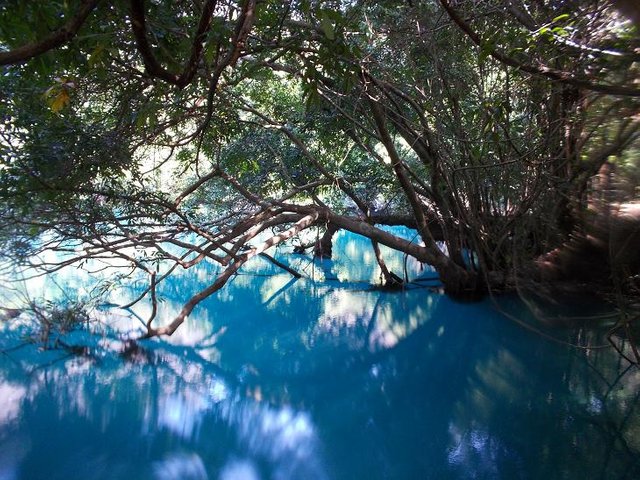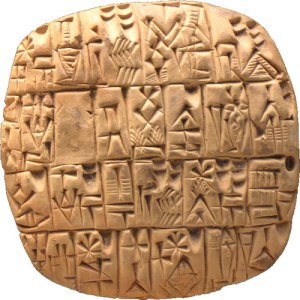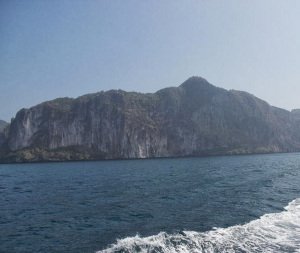Found: Garden of Eden
 |
|---|
This tale is commonly recognized from the start of the bible, as the beginning of mankind on Earth. It was the place where Adam and Eve were created, and where an abundance of animals, fruits and flora made their home. The Legend goes that a snake tricked Eve into disobeying God and eating the forbidden fruit, causing her and Adam to be exiled from the garden. This set into motion a downward spiral for humankind, of which we are still experiencing today.
 |
|---|
| Example from omniglot.com |
Due to not wanting to invoke God’s fury once more, I assume, no attempt was made to return to the physical borders of Eden at a later time, and very quickly its existence almost fell completely from the face of the Earth. Any reference from there on was with a sense of longing, placing the Garden somewhere far into an idyllic future, and pushing its previous reality further from history and closer towards mythology.
Due to the fantastical air created by this idea of un-achievable perfection, scholars began seeing this tale from a purely metaphorical point of view. It became the starting point for many theories and interpretations of what different tales from the bible could possibly resemble, symbolically. One example is that, perhaps, the tale was referring to the first instance of disease or bacterial infection (before there was any medical explanation) leading to a fall from a previously enriched and healthy lifestyle. Perhaps more simply, it was a narration on the primal ways of man and our impeccable ability to always want more, even when it’s detrimental to our own well-being.
As articles and theses on the subject come and go, the religious texts remain prominent. As baffled as some continue to be by the legend of Eden, it’s completely possible that the answer that we seek had already been sought and found thousands of years ago, when ancient texts such as the Epic of Gilgamesh and the Bible were written. If this is so, and we are to assume that the Garden is a real place on Earth, then where would it have been, and is it still there?
 |
|---|
The Paradise mentioned within the Epic of Gilgamesh has its roots stemming from an island named Bahrain, in what is now the Persian Gulf. This island was depicted as lush with rain-forests, plentiful in fruits, and was once a thriving marketplace during the Mesopotamian era. As a standalone oasis among the arid deserts of the surrounding areas, it’s easy to see how Bahrain earned the title ‘Dilmun’, or ‘Paradise’.
Now, the island of Bahrain is scattered with over 85,000 burial grounds, holding bones that indicate that the people of the island were taller, healthier and lived longer than any others in the region. Their graves are also littered with remains of snakes. For the people still hoping to reach Eden, however, the search may not stop for you here. Despite the evidence of a once thriving community, Bahrain is now a dry desert island, and any remnants of paradise have long since turned to dust.
 |
|---|
With this discovery coming thousands of years after the tales of Eden were written, I can’t help but wonder if we were ever really meant to find the Garden. Perhaps the tale held truth in history, but was written not as a map to guide us there, but as a guideline, to direct our lives in a positive direction. Perhaps the people of Bahrain were simply making the most of what they had, and the fable of the Garden of Eden was meant to encourage future generations to do the same. The Garden of Eden may no longer be in Bahrain, but with a little care for our surroundings, and some attention paid towards the fragile balance of nature, it may just be possible to grow our own patches of Eden.
Maybe one day, we could all live within the Garden, no matter where we are on Earth.
 |
Jonathon Best is a writer and poet from Perth, Western Australia. You can read his poetry free at jbestbooks.com.
His poetry collection: Dreams, magic and life is now available at Amazon. |
Your post r very interesting and helpful. So I appreciate your working. It may inspaire many other. Like it inspires me. Can u plz follow me and upvote me . If u help me, my friend I will also help you. I had vote you.
Nice post. Thanks.